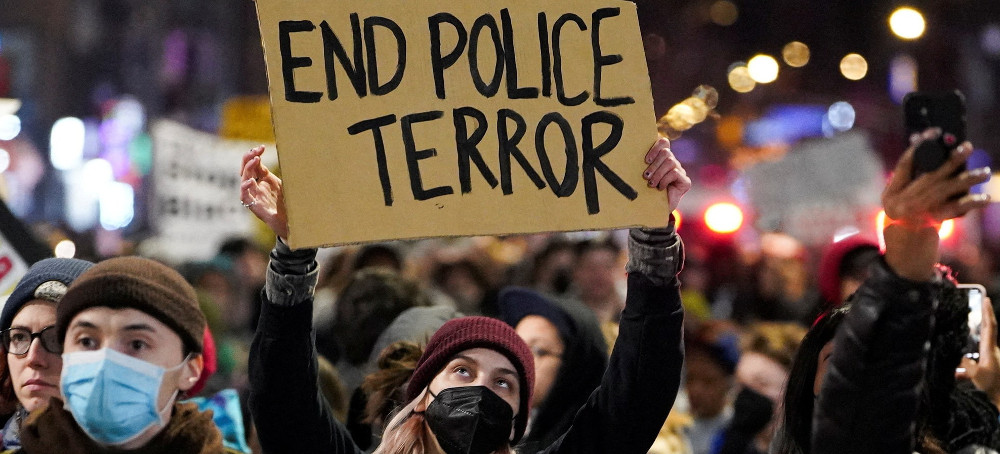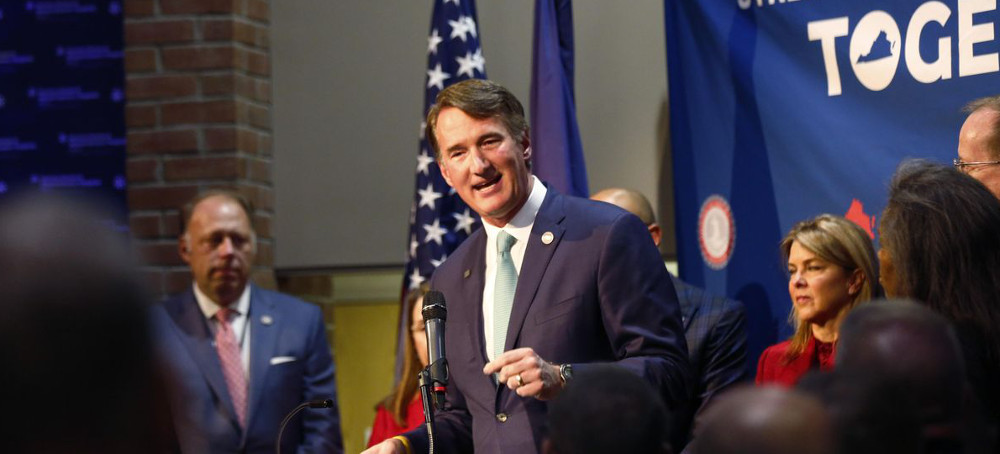Live on the homepage now!
Reader Supported News
The billionaire said that he would personally talk to the Martians and persuade them that joining a union would be a mistake that he’ll “make sure they’ll regret.”
“Right now, there appears to be water on Mars,” he said. “But if they join a union I’ll take away their water.”
Musk added that he would offer Martians an opportunity to work at Twitter, “but not if they want to work remotely.”
READ MORE  Duvets and sleeping bag are seen in a basement which, according to Ukrainian authorities, was used as a torture cell during the Russian occupation, in the retaken village of Kozacha Lopan, Ukraine, Sept. 17, 2022. (photo: AP)
Duvets and sleeping bag are seen in a basement which, according to Ukrainian authorities, was used as a torture cell during the Russian occupation, in the retaken village of Kozacha Lopan, Ukraine, Sept. 17, 2022. (photo: AP)
How Russian invaders unleashed violence on small-town residents
Occupied. Marunyak had been expecting the war to break out, but he had no sense of what a Russian occupation of his village might mean. Like his colleagues, Marunyak is an elected official—genuinely elected, since 2006, under Ukrainian laws giving real power to local governments, not appointed following a falsified plebiscite, as a similar official might have been in the Soviet era or might be in modern Russia. That meant that when the occupation began, he felt an enormous responsibility to stay in Stara Zburjivka and help his constituents cope with a cascade of emergencies. “Already, within a few days, there were families lacking food,” he recalls. “There was no bread or flour, so I was trying to buy grain from the farmers … Many residents began contributing the food they could share, and so we created a fund, providing assistance on demand.”
READ MORE  Efforts by former president Donald J. Trump and his allies to overturn his 2020 loss in Georgia have been under investigation for the past two years. (photo: Maddie McGarvey/The New York Times)
Efforts by former president Donald J. Trump and his allies to overturn his 2020 loss in Georgia have been under investigation for the past two years. (photo: Maddie McGarvey/The New York Times)
But the jurors said they believed that “one or more” unnamed witness who testified in the inquiry may have committed perjury and should face indictment. They also found “that no widespread fraud took place in the Georgia 2020 presidential election that could result in overturning that election,” rejecting arguments made by Mr. Trump and his supporters.
Here are the details:
- The publicly released portion of the report does not mention the names of anyone that the jurors think should or should not be indicted. Nor does it mention, beyond potential perjury, which Georgia laws the jurors believe may have been violated. Read the released portions of the report here.
- Although Georgia law requires the release of a special grand jury’s final report, a judge decided to disclose only a small portion on Thursday. Here’s why.
- The grand jury’s recommendations are now in the hands of Fulton County District Attorney Fani T. Willis, who has been a prosecutor for nearly two decades. Read more about her.
- During a hearing last month, Ms. Willis that decisions on whether to seek indictments were “imminent,” although she has not specified what that means. Her office is known to have informed nearly 20 people that they could face charges. Read about them here.
- A central element of the investigation is the call by Mr. Trump on Jan. 2, 2021, during which he told Brad Raffensperger, the Georgia secretary of state, that he needed to “find” 11,780 votes — the number he needed to overcome Joseph R. Biden Jr.’s lead in the state. Listen to highlights of that call.
READ MORE  A person holds a sign during a protest following the 7 January 2023 police beating of Tyre Nichols, who died three days later. (photo: David Dee Delgado/Reuters)
A person holds a sign during a protest following the 7 January 2023 police beating of Tyre Nichols, who died three days later. (photo: David Dee Delgado/Reuters)
Police killings of any sort account for nearly 5% of all homicides, with at least 1,192 people killed by law enforcement in 2022
Law enforcement officers killed at least 1,192 people in 2022, the highest number recorded in a decade, according to Mapping Police Violence, a prominent non-profit database of police killings. More than 1,100 people were killed by the police in both 2020 and 2021. The vast majority of these deaths were police shootings.
There were more than 25,000 total homicides in the US in 2020 and 26,000 in 2021, according to data from the Centers for Disease Control and Prevention (CDC). National data for 2022 is not yet available.
Police shooting deaths represented 5% of all gun homicides in 2020 and 2021, and total police killings represented nearly 5% of all homicides, according to the best available public data.
Because only a small number of deadly incidents each year receive wide media attention, many Americans may not realize that “a meaningful fraction of homicides in the US are police killings”, said Justin Feldman, a researcher at the Center for Policing Equity.
The number of US homicide victims who die in mass shootings each year, for instance, is smaller than the number killed by police. While definitions of “mass shooting” vary, the estimated number of people killed in these incidents have ranged from a few dozen to 700 people a year in recent years.
“There is a lot of fear, with mass shootings and gun violence in general, that some stranger will show up wherever you are and kill you,” said Samuel Sinyangwe, the founder of Mapping Police Violence. “But police contribute a large part to those numbers.”
The circumstances for many murders are listed as unknown in the FBI’s incomplete national crime statistics database, but in 2020 nearly 4,000 people were listed as being killed by a friend or an acquaintance, and about 1,800 were known to be killed by a stranger.
Some police departments have much higher rates of police killings than others. In Vallejo, California, which is known for police violence, the police department was responsible for 30% of the city’s homicides in 2012. Police killed six people that year; a single officer killed three people in three different incidents, and was later promoted.
More than 32,000 Americans have been killed by police since 1980, but official public health statistics have undercounted the number of killings for decades, according to a 2021 study from University of Washington researchers published in the Lancet, a prominent medical journal. Over the past four decades, US police have killed Black people at a rate 3.5 times higher than white people, and have also killed Hispanic and Indigenous people at higher rates, the study estimated.
The rate of fatalities from police violence rose even when the nation’s overall homicide rate sharply declined, with the rate of deaths from police violence rising 38% from the 1980s to the 2010s, the study found.
The US has much higher rates of both police killings and overall homicides than other wealthy countries. In Europe, the combined number of police killings and state executions remains in the single digits each year in many countries, according to data from the University of Washington’s Institute for Health Metrics and Evaluation (IHME). The US’s annual rate of police killings and state executions, with more than 1,000 deaths a year, is more comparable to Brazil, Colombia, Venezuela, Cameroon, Libya and Sudan, according to IHME data.
At least one international study has found the rate of police killings “strongly correlates” with overall homicide rates across multiple countries, but also noted that data on police violence is likely to be less reliable in countries where police kill more frequently.
A 2018 paper published in the American Journal of Public Health found that “police were responsible for about 8% of all homicides with adult male victims between 2012 and 2018”, or about one in 12. Frank Edwards, a Rutgers University sociologist and the lead author of that study, said it was not surprising that the current percentage of police homicides would be somewhat lower than 8% when factoring in the killings of women and well as men, and as the national total number of homicides had also increased sharply since 2020.
Public databases from news outlets and non-profits still offer more complete and reliable data on police killings than the US government, more than seven years after the nation’s FBI director called it “embarrassing and ridiculous” that newspapers produced a more accurate national count of US police shootings than the Department of Justice. Mapping Police Violence, for instance, tracks police killings using a combination of state law enforcement data and incident data drawn from media reports and public records requests.
It’s not only national crime data that’s flawed when it comes to homicides by police. For decades, more than half of police killings have been mislabeled as generic homicides or suicides in the CDC’s official death statistics database, said Eve Wool and Mohsen Naghavi, two of the authors of the Lancet paper on police killings.
The undercounting of police killings in public health data is a result of coding failures by coroners, medical examiners and other public health officials, many of whom “work for or are embedded within police departments”, the researchers found.
Because of the lack of official statistics, Feldman and Edwards said, comparing the count of police killings in non-profit databases like Mapping Police Violence with the CDC’s total homicide numbers is the most accurate way to estimate the percentage of homicides committed by police.
READ MORE  Glenn Youngkin on 14 December 2022, in Henrico, Virginia. (photo: Daniel Sangjib Min/AP)
Glenn Youngkin on 14 December 2022, in Henrico, Virginia. (photo: Daniel Sangjib Min/AP)
Glenn Youngkin essentially kills bill passed in Democratic-led state senate to ban search warrants for menstrual data on tracking apps
A bill passed in the Democratic-led state senate, and supported by half the chamber’s Republicans, would have banned search warrants for menstrual data stored in tracking apps on mobile phones or other electronic devices.
Advocates feared private health information could be used in prosecutions for abortion law violations, after a US supreme court ruling last summer overturned federal protections for the procedure.
But Youngkin, who has pushed for a 15-week abortion ban to mirror similar measures in several Republican-controlled states, essentially killed the bill through a procedural move in a subcommittee of the Republican-controlled House.
Citing unspecified future threats to the ability of law enforcement to investigate crime, Maggie Cleary, Youngkin’s deputy secretary of public safety, told the courts of justice subcommittee it was not the legislature’s responsibility to restrict the scope of search warrants.
“While the administration understands the importance of individuals’ privacy … this bill would be the very first of its kind that I’m aware of, in Virginia or anywhere, that would set a limit on what search warrants can do,” she said, according to the Washington Post.
“Currently any health information or any app information is available via search warrant. And we believe that should continue to be the case.”
The panel voted on party line to table the bill, meaning it is unlikely to resurface during the current legislative session.
Abortion rights advocates contend that with Youngkin’s efforts to push a 15-week abortion ban, with limited exceptions, failing to advance in either legislative chamber, the governor is looking for other avenues.
“The Youngkin administration’s opposition to this commonsense privacy protection measure shows his real intentions, to ban abortion and criminalise patients and medical providers,” said Tarina Keene, executive director of Repro Rising Virginia, in a statement provided to the Guardian.
Youngkin has insisted that any abortion restrictions would target doctors, not women who have the procedure.
The administration has also attempted to portray a united front among Republicans for abortion restrictions, arguing it is a consensus issue. But the defection of the nine senate Republicans over the menstrual data bill follows one of their number, Siobhan Dunnavant, speaking out last month against Youngkin’s 15-week proposal.
Dunnavant, an ob-gyn doctor, condemned the bill as “extreme”, according to the Virginia Mercury, and said she could not support it unless it contained an exception for severe fetal abnormalities to 24 weeks. Under current Virginia law, the procedure is legal for all women until the 27th week of pregnancy.
The wrangle over menstrual data tracking has parallels with a controversy in Florida, in which high school athletics officials last week backed away from a “humiliating” proposal requiring girls who wanted to play sports to answer questions about menstruation on medical forms.
Critics said the requirement aligned with a push by the Republican governor, Ron DeSantis, to curtail transgender rights, an allegation denied by high school officials.
READ MORE  White House senior adviser Jared Kushner stands among Saudi officials as President Trump talks with Crown Prince Mohammad bin Salman of the Kingdom of Saudi Arabia during a meeting in the Oval Office in March 2018. (photo: Jabin Botsford/The Washington Post)
White House senior adviser Jared Kushner stands among Saudi officials as President Trump talks with Crown Prince Mohammad bin Salman of the Kingdom of Saudi Arabia during a meeting in the Oval Office in March 2018. (photo: Jabin Botsford/The Washington Post)
Rep. Jamie Raskin says he is ‘deeply troubled’ by a prior refusal from Kushner to turn over relevant information
The letter from Rep. Jamie B. Raskin (Md.), the ranking Democrat on the House Oversight and Accountability Committee, cited a Washington Post story published online Saturday and other reports that he said raised disturbing questions about Kushner’s relationship with Saudi Crown Prince Mohammed bin Salman.
Mohammed chairs a sovereign wealth fund that invested in Kushner’s private equity fund, known as Affinity Partners, soon after Kushner left a White House position that dealt regularly with Saudi affairs.
“I am deeply troubled by your continued refusal to produce documents regarding the Saudi government’s $2 billion investment in your fund in light of recent prominent reporting that Saudi Arabia made that investment in Affinity just months after you left a senior White House position where you were responsible for shaping Middle East policy,” Raskin wrote to Kushner.
Raskin’s letter also requested that Kushner identify all foreign investors in his company.
Kushner did not immediately respond to a request for comment.
Raskin’s letter followed up on a request in June from the committee, which at the time was controlled by Democrats, for the documents.
While Kushner’s company turned over nearly 2,000 pages in response, Raskin revealed in Tuesday’s letter that they mostly amounted to publicly available documents that do “not substantively relate to the Saudi government’s investment in the firm.” Raskin wrote that when the committee followed up in October, the company’s legal officer did not respond.
With Republicans now in control of the House, Raskin this week asked the committee’s chairman, Rep. James Comer (Ky.), to co-sign the letter. Comer, asked Sunday on ABC News’s “This Week” whether he would push for an investigation into Kushner just as he is probing actions by President Biden’s son Hunter Biden, had responded that “everything is on the table.”
But Comer said in a statement Tuesday to The Post that he would not co-sign Raskin’s letter, a decision that could make it harder for House Democrats to obtain the information from Kushner.
“Ranking Member Raskin and Committee Democrats have a long way to go to prove they are interested in true oversight after having spent the past two years giving the Biden Administration a free pass,” Comer said. “If Democrats want to join Committee Republicans in our ongoing efforts, including investigating Joe Biden’s involvement in his family’s suspicious business schemes with foreign adversaries, then we can discuss joining together on future requests. Until then, Committee Republicans will continue seeking answers for the American people about the current Administration’s activities.”
Raskin’s request is expected to be picked up by a concurrent investigation by the Senate Finance Committee and its chairman, Sen. Ron Wyden (Ore.). “The financial links between the Saudi royal family and the Trump family raise very serious issues, and when you factor in Jared Kushner’s financial interests, you are looking right at the cat’s cradle of financial entanglements,” Wyden told The Post last week.
Raskin said in an interview Tuesday that while he still hoped Comer would cooperate, “We will definitely work with our partners in the Senate to get all of the information we need in order to conduct a thorough and detailed investigation of all of the conflicts of interests that we need to learn about.”
Raskin said he was “not going to allow this to be some kind of lopsided partisan witch hunt. Let’s have a serious investigation into public policy and the profound ethical concerns that have been raised.”
As President Donald Trump’s senior adviser, Kushner worked closely with Mohammed, who became crown prince in part by leveraging his ties to the Trump administration, which provided arms sales and other benefits. Trump also provided crucial support by refusing to endorse a CIA finding that Mohammed had ordered the killing or capture of Jamal Khashoggi, a Post contributing columnist who had been critical of the crown prince’s policies. Trump has said that he “saved” Mohammed, and former secretary of state Mike Pompeo wrote in his recent memoir that he was told by Trump to visit with the crown prince and “tell him he owes us.”
The Saudi Public Investment Fund has also financed LIV Golf, which is holding tournaments on Trump’s golf courses. It is unclear how much Trump earns from that arrangement. A Trump spokesman did not immediately respond to a request for comment.
In his letter to Kushner, Raskin wrote, “Your efforts to protect the Crown Prince may have allowed him to maintain his position at the top of the Saudi government and, thus, his ability to deliver significant financial benefits to you and your father-in-law after the end of the Trump Administration.”
Raskin noted that when the committee contacted Kushner’s company in June, it responded that it had “nothing to hide” and was “committed to working with the Committee to provide appropriate details, documents, and information to help inform your investigation.”
While Affinity eventually provided some documents, Raskin wrote, it “failed to produce a single communication related to the reasons behind your firm’s receipt of $2 billion from the Saudi sovereign wealth fund.”
The congressman asked for the documents to be provided by March 1.
READ MORE  Bernard Looney, the CEO of BP, arrives in Downing Street, London, September 11, 2020. (photo: Aaron Chown/Getty)
Bernard Looney, the CEO of BP, arrives in Downing Street, London, September 11, 2020. (photo: Aaron Chown/Getty)
"If we see value, we’ll do it. If we don’t, we won’t."
But in recent weeks, these oil giants have begun tapping the breaks on these much-publicized initiatives. BP walked away from its target to reduce emissions by 35 percent by 2030 — once lauded as the most ambitious, tangible goal in the industry — promising a cut between 20 to 30 percent instead. Shell said it would not increase spending on renewable energy this year, contrary to expectations. Meanwhile, Exxon has pulled back funding from its decade-long algae effort.
These quiet announcements coincided with their recent blockbuster earnings reports, which were celebrated by executives and excoriated by politicians like President Joe Biden, who called them “outrageous.” Buoyed by oil prices soaring above $100 a barrel last year, the oil giants roughly doubled their profits from the year before, with BP raking in $28 billion and Shell $40 billion. Exxon, the oil major that has been the least enthusiastic about renewables, reported even better results — $56 billion, up 143 percent from the year before and a record for a Western oil company.
“We leaned in when others leaned out, bucking conventional wisdom,” said Darren Woods, Exxon’s CEO, in a call with investors, praising his company’s resistance to pulling back on fossil fuel production.
“You know, nothing like profits rolling in to make Big Oil show its true colors,” said Jamie Henn, the director of Fossil Free Media. “I think over the last few weeks, we’ve seen the industry take off the green mask that it has been wearing for the last few years and remind us of its true identity and its real business model, which is the continued extraction and production of fossil fuels at the expense of our climate and communities.”
So why are oil companies slowing down on renewables now, when they have plenty of cash to spend and the world is grappling with the alarming fires, floods, and droughts spurred by climate change? The ease of short-term profits when oil prices are high and the political cover provided by concern about “energy security” have played a large role. Heartened by last year’s flow of oil cash and dissuaded by the rising costs of installing wind and solar, executives are turning away from the longer-term payoffs promised by renewable investments. Climate advocates say that Big Oil’s recent moves should serve as a wake-up call for investors and regulators that oil companies plan to double down on fossil fuels for as long as it’s profitable.
“If they’re not going to invest more on the energy transition now, then when?” asked Krista Halttunen, an energy researcher at Imperial College London.
Some oil executives have been pretty upfront about the reasons they’re backing off. “We’re going to be driven by value,” Bernard Looney, BP’s CEO, said on an earnings call last week. “That’s what we’re going to be driven by. And if we see value, we’ll do it. If we don’t, we won’t.”
The war in Ukraine, and the ensuing fuel crunch as Europe and the United States sought to end imports of Russian oil and gas, has created more cover for BP and other companies to ramp up oil production in the name of energy security, said Trey Cowan, an oil and gas analyst at the Institute for Energy Economics and Financial Analysis. “They got the political will following what their will is at this point,” Cowan said. In a recent interview with the Wall Street Journal, Looney said that BP’s goal wasn’t just to deliver clean energy, but “affordable energy, secure energy.”
The rising costs of rare earth metals, used in wind turbines and solar panels, may also be slowing down oil companies’ spending on renewables. The cost of a stationary solar installation, for instance, rose 14 percent globally between the summers of 2021 and 2022, according to a BloombergNEF analysis.
After announcing the company’s earnings this month, Wael Sawan, Shell’s CEO, said that the company planned to increase natural gas production and would not be ramping up spending on renewables this year. In 2022, Shell’s capital spending on “low-carbon” initiatives (a broad definition that includes gas) had increased to $3.5 billion, almost a 50 percent increase over the prior year. But the potential clean-energy profits of tomorrow don’t make good business sense when oil and gas are making sky-high profits today, Sawan explained. “We cannot justify going for a low return,” he said during a conference call. “Absolutely, we want to continue to go for lower and lower and lower carbon, but it has to be profitable.”
There are also some unexpected reasons that oil giants might be backing off renewable investments now. Take Exxon’s recent retreat from experimenting with making low-carbon biofuels from algae, a venture that the company poured $350 million into over the last decade (in addition to spending about half that sum advertising the effort). Vijay Swarup, Exxon’s senior director of technology, told Bloomberg that algae still needed more work before deployment, so the company was prioritizing carbon capture and hydrogen instead.
Oddly enough, the Inflation Reduction Act, the landmark climate legislation that President Joe Biden signed into law last summer, might have something to do with it. It has shifted incentives for oil and gas companies, which are now looking to take advantage of new tax credits for projects that store and capture carbon dioxide, Cowan said.
Oil companies tend to like the idea of capturing carbon released from burning fossil fuels since it legitimizes their core business — selling fossil fuels. Not only can they continue to emit carbon, but they can also get tax credits for trapping and storing it. “It’s sort of a misaligned incentive of, ‘Hey, create carbon to go store it in the ground,’” Cowan said.
From an accounting perspective, it was also a good time for Exxon to end its research, he said. With its high profits, the company could write off the algae expenses as a loss without drawing a lot of attention to it.
Oil companies may be “emboldened” by their record earnings, but Cowan warns that many investors are wary of getting back into oil’s boom-and-bust cycle. In the long run, though, he bets that there will be an excess of oil on the market again, and that with less leverage over investors, oil companies will have to rein in the pollution they’re producing. “It all comes down to price at the end of the day,” Cowan said. “If prices are low, these oil and gas companies don’t look as desirable from an investment standpoint. That’s the bottom line.”
Follow us on facebook and twitter!
PO Box 2043 / Citrus Heights, CA 95611



No comments:
Post a Comment
Note: Only a member of this blog may post a comment.